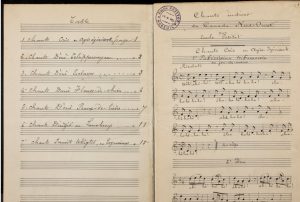Engaging in another person’s culture can be a touchy subject – learning about other cultures is valuable and even fun! In some cases, however, it’s clear that some people overstep in their engagement of a culture that they’re not originally a part of. Such is the case of “non-Indians” mentioned in “The Oglala War Cry”, a newspaper published in the 1970s written by and for residents of the South Dakota Pine Ridge Reservation. This newspaper centered events or happenings relevant to the Pine Ridge residents, which may have included job postings, advertisements, or achievements of students in the local school. The newspaper also included many warnings and informative articles to residents questioning practices and problematic behavior within the community, as well as articles targeting the exploitation of land and culture that took place in Pine Ridge.
In a newspaper article addressed to the Editor of The Oglala War Cry, Debbie Rook writes a letter questioning the actions allowing Casey Tibbs, a cowboy and actor at the time, to record and possibly use film of a sacred dance, the Sun Dance, in a film he was producing, “The Wild Breed.” Rook points out that the community “lose[s] money each year on the Sundance,” pointing out that this would’ve been an opportunity for the community to be compensated. Rook parallels this exploitation with the sale of the Manhattan Island, which was sold from the Algonquin Indians to Peter Minuit for what today would be $24 in 1626. By comparing these events, Rook emphasizes the importance of the Sun Dance and the history that the community has between non-Indigenous people (and in this case, white people) and their culture. This brings to question – how should you collaborate and approach the culture of a people who have historically been exploited, deceived, or oppressed?

